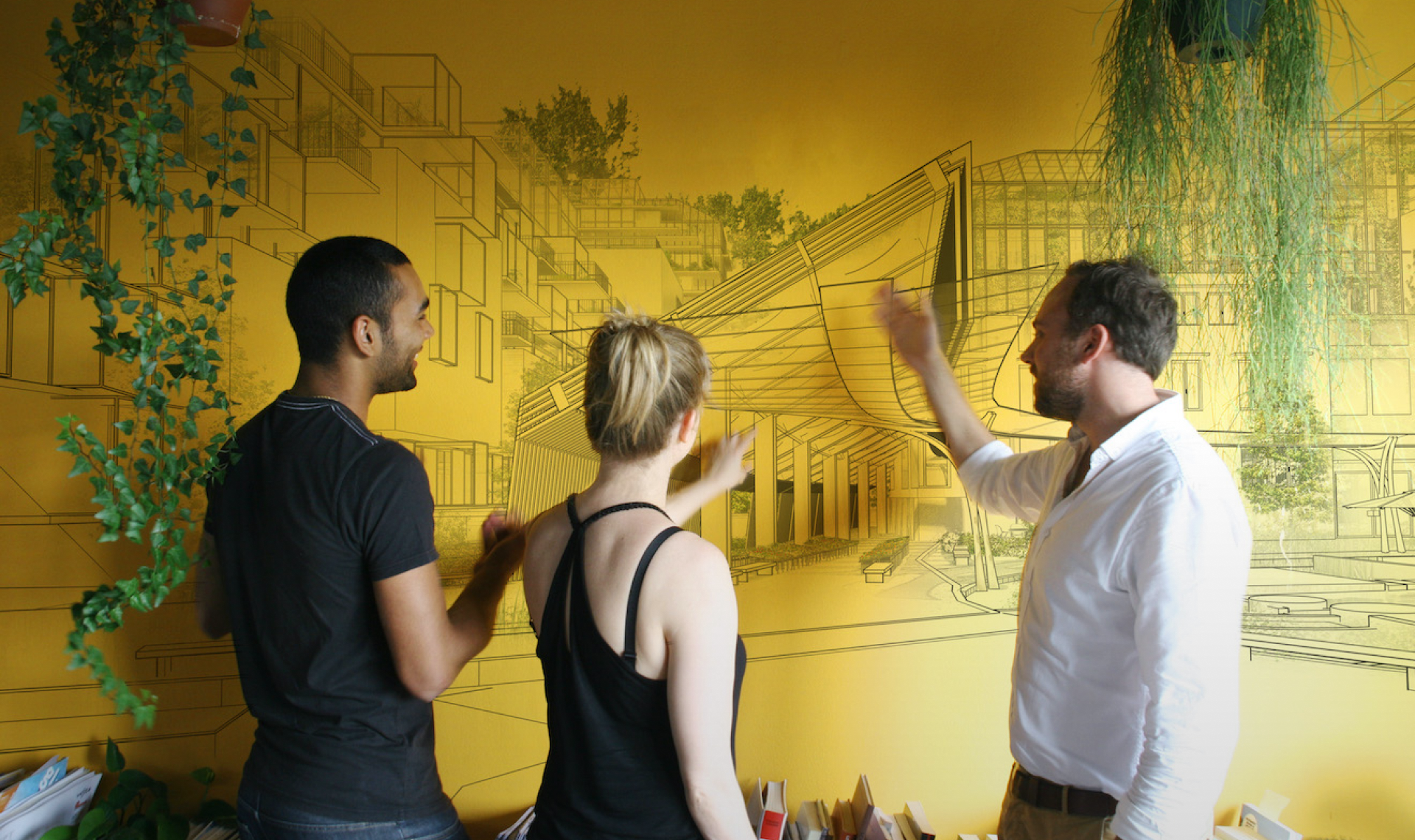Science wants us to overthrow capitalism, discover the ten worst polluted areas in the World, and have fun with some sustainable business jargon. Read all about it in this Wormfood. Also, on the 6th of December we will organize our first master class about the City of Tomorrow. For that reason we added a section to this newsletter. If you have suggestions for articles, let me know.
Global News: Science is telling us all to revolt
-
Complex systems researcher Brad Werner´s computer model shows that our entire economic paradigm is a threat to ecological stability. And that challenging this economic paradigm – through mass-movement counter-pressure – is humanity’s best shot at avoiding catastrophe. In other words, science is telling us all to revolt.
- This interactive map shows the world as it is now, with only one difference: All the ice on land has melted and drained into the sea. Sealevel rose 216 feet and our continents ´enjoy´ new shorelines.
- The pace of humanity's greenhouse gas emissions shows signs of a global slowdown. Importantly – and unlike the drop in emissions triggered by the 2008 recession – the let-off is happening at the same time as global wealth continues to swell.
Business & Economy: Talk about sustainability

- This infographic gives an overview of sustainable jargon for business.
- The United Nations World Food Programme is planning to distribute Mastercard prepaid debit cards, each loaded with $27, to Syrian refugees in Lebanon so they can buy their own food and boost the local economy. That money means refugees won't have to wait in line for new paper vouchers every 30 days, and they will no longer be dependent on pre-packaged rations.
Energy & Environment: Top ten toxic threats 2013

- The report “Top Ten Toxic Threats 2013” is released. The dubious honor of being the World´s worst polluted areas goes to:
- Agbogbloshie Dumpsite, Ghana
- Chernobyl, Ukraine
- Citarum River, Indonesia
- Dzerzhinsk, Russia
- Hazaribagh, Bangladesh
- Kabwe, Zambia
- Kalimantan, Indonesia
- Matanza-Riachuelo, Argentina
- Niger River Delta, Nigeria
- Norilsk, Russia
- The switch from the finite store of fossil fuels to renewable sources will involve a huge additional demand for the world’s equally finite store of metals and minerals. French scientists published an article about the issue in Nature Geoscience: “More mining is unavoidable, but increased recycling, substitution and careful design of new high-tech devices will help meet the growing demand.”
Science, Technology, & Design: Gamers unfold HIV protein

- Gamers determined the structure of the M-PMV retroviral protein, an enzyme that plays a key role in the development of a virus similar to HIV, by playing the spatial game Foldit. This finding might hold a critical role in building a cure for the disease. Scientists have striven to find its chemical key for ten years now.
- Oxford Photovoltaics, a spin-off from the University of Oxford, works on ‘solar glass’ and just received a £2m funding boost. “What we say here is rather than attach [solar] photovoltaics to the building, why not make the building the photovoltaics?” according to Kevin Arthur, the company’s founder and CEO “If you decide to build a building out of glass, then you’ve already decided to pay for the glass. If you add this, you’re adding a very small extra cost. [The solar cell treatment] costs no more than 10% of the cost of the facade.”
Urban Environment: The answer to the phosphorus crisis

- This TED talk explores using arbuscular mycorrhizal fungi (AMF) to decrease the need for phosphorus in agriculture. The world is running out of this essential nutrient. All roads of this crisis lead back to how we farm - with chemical fertilizers chock-full of the element, which plants are not efficient at absorbing. Arbuscalar Mycolrrhizal fungi might be the answer to this problem.
- As many as 800,000 people in England are chronically lonely. “The only time I see someone is when I shop. I put on my best clothes to go shopping and always look very smart. But once I get home there is no escape from the loneliness.”
Unexpected and Intriguing: Catching cat smugglers

- A cat that was being used to smuggle marijuana into a Moldova jail has been caught by authorities. This isn't the first time that a cat has been used to smuggle stuff into a prison. June 2013 a cat that had cellphones and chargers taped to its belly was busted by guards at a prison near Syktyvkar in northern Russia. The Moscow Times reported that the cat was caught climbing the prison fence.
- A Japanese company has invented carbon wetsuits and lead-based underwear that can protect against radiation amid the growing aftermath of the Fukushima nuclear crisis.
- The National Front in France has suspended a politician who called Christiane Taubira, the country’s black justice minister, a “monkey” who she would “rather see in the trees than in the government”.
- Get buried in a cardboard box. Standard coffins, made of cheap wood, frequently cost hundreds of euros or dollars, yet are in ‘active’ use for only a very short while. In contrast, this design aims to provide exactly what is needed: a disposable box for a short-lived service.
City of Tomorrow: A sustainable future

- Back to the (sustainable) future: the year 2050 in words and pictures
- What makes a city a great place to live? This article explores this question by taking Columbian city Bogotá as an example. “By spending resources and designing cities in a way that values everyone's experience, we can make cities that help us all get stronger, more resilient, more connected, more active and more free. We just have to decide who our cities are for. And we have to believe that they can change.”
- Places in the Making, a new report from MIT’s department of urban studies and planning (DUSP), gives insight into the process of placemaking. Placemaking capitalizes on a local community’s assets, inspiration, and potential, ultimately creating good public spaces that promote people’s health, happiness, and wellbeing.
This bi-weekly digest is assembled from items sent to us by Except members. Have questions, comments, or news items to suggest? E-mail merel.segers@except.nl. Read past Wormfood global news reports here.
Nov. 11, 2013

